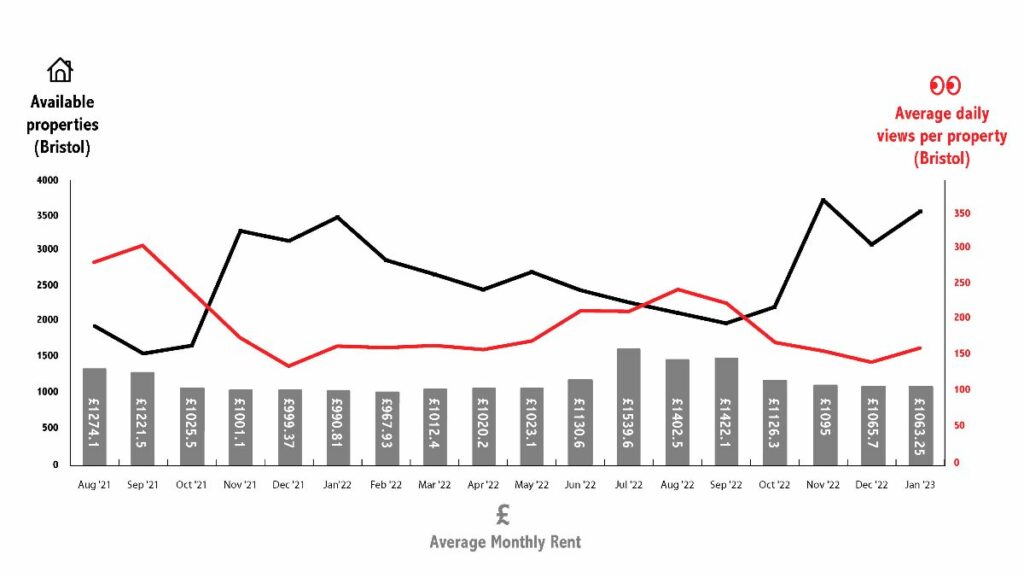
Key responsibilities/duties
- Achieve individual and (contribute to) team, and business targets and KPIs.
- Assist in the development of fee structures, sales products, and services.
- Provide expert advice and guidance to new and existing clients, landlords, and tenants alike.
- Generate leads and convert these to instructions and manage a pipeline.
- Conduct property valuations and market properties.
- Maximise income profit by agreeing on maximum fees whilst remaining competitive in the market.
- Develop and maintain relationships with existing clients (particularly with multi-property “Golden Landlords”, regularly checking in and providing guidance.
- Conduct property viewings, providing feedback and insight on market conditions to landlords with properties available on the market.
- Successfully list a targeted number of properties, advising and helping our Landlords to let their properties for the best price and with the best service and support possible.
- Foster and maintain excellent landlord relationships.
-
Experience and knowledge
- Minimum of 3 years’ experience in residential lettings.
- Minimum of 1 years’ experience in a valuation role.
- In-depth knowledge of the Bristol residential lettings market.
- Good understanding of sector wide trends and legislative changes.
Desirable- Qualification – ARLA Level 3
-
Essential experience and skills:
Skills
- Excellent customer service.
- Outstanding sales and negotiation skills.
- Well organised and highly driven.
- Strong IT proficiency.
- High-level written and verbal communication.
- Proven influencing and strong relationship and rapport-building ability.
- Empathetic and emotionally intelligent.
- Able to demonstrate resilience, adaptability and accountability and achieve weekly and monthly targets.
- Strategic, proactive, and problem-solving mindset.
- A professional, friendly and approachable attitude.
- Able to demonstrate flexibility and reliability.
- A full driving licence is a must, as well as your own transport.
Working hours:
This is a full-time, permanent role working; Monday to Thursday 8.30am-5.30pm, Friday 8.30am-5pm. You’ll also work one weekday 8:30am-6:30pm and 1 in 4 Saturdays.
In return for loyal service, we can offer great development opportunities, a welcoming work environment and a highly supportive team.
Application Form
Please fill in the below if you’d like to apply for a role or just send us your CV for future opportunities.
Fill in your details
Attach your CV and covering letter
We’ll be in contact
Bristol Letting Market Update:
Tenant enquiries have started to pick up across Bristol after a quiet December. Although, the average number of enquiries per Bristol rental property on Rightmove are down year on year. This increased competition for tenants is also supported by a 25% increase in available rental stock. Which means there are more properties for prospective tenants to choose from.
At The Letting Game, we’re working hard and smart with our first-look Instagram posts, Corporate connections and professional marketing, having secured tenants for over 150 properties by the end of February! We’d also expect to see the volume of tenant enquiries to pick up even more over the coming months.
Rental prices across the Southwest continue to increase, with a 7.5% increase for Dec/Jan compared to the previous year (Goodlord). Rest assured, we continue to review our landlord’s rent just before the end of a tenancy.

Other rental news
Other news includes the Right to Rent fine increases that went live on the 13th of February. As a result first-time breaches increasing from £1,000 per occupier to a maximum of £10,000 per occupier for first offences, increasing to up to £20,000 for repeat offences. This shows the importance of our role with the new tenant checks we undertake for our landlords.
We also confirmed last month that even more rentals across Bristol will require a licence from August ’24. All HMOs city wide will require an additional licence and in some areas a licence will be needed for all rentals even with just 1 tenant. If you missed that article, you can still read it here>
Right to Rent code of practice
A new Right to Rent code of practice comes into effect shortly (22nd January) which is being implemented alongside a big hike in non-compliance fines. It could cost up to £10,000 per occupier for a first breach, and up to £20,000 for repeat breaches. We take our responsibilities seriously and make sure the checks are in place to help landlords fulfil their legal obligations when finding tenants (and the ongoing responsibilities for those we manage).
New licensing requirements
Bristol landlords may also see the roll-out of new licensing requirements. There was a public consultation that closed on the 7th of November, we’re still waiting to hear the results of this, but it’s likely to mean more landlords will need a licence for their rentals. Read our article on the proposals here.
General election
A general election must be held before the end of January 2025, so with that likely to be this year we would expect further manifesto pledges around housing, and the rental market is likely to be included in this. We will bring the latest news on rental manifesto pledges to you.
Pace of the market
The pace of the tenant market slowed across the last quarter of 2023. However, we still expect to see tenant demand increase again from spring into another busy summer. Ultimately mortgage rates are still high, so many will continue to remain in or join the rental market.
We expect rental prices to continue to rise but at a slightly slower rate than seen over the last couple of years. With the challenging cost of living, many renters would struggle with significant increases to their rent – that said, we review our landlord’s rents each year and discuss increases where appropriate.

Landlords given more consideration
It was refreshing to hear Michael Gove’s framing of the market. He highlighted the importance of the private rental market (between 19% and 20% of total housing in this country.) There was a recognition that there were certain rights a tenant should expect and deserve. Reassuringly for landlords in the Bristol rental market, there was also an acknowledgement that many landlords provide an excellent service. It does feel like more of a balance is being found between improving tenant rights and protecting good landlords.
So, the detail is starting to become a little clearer. However, its worth noting this is not law yet and there will likely be changes as the bill is debated. Although these are subject to change here are some of the key points we’ve picked up on: –
Abolishment of section 21’s
An election promise by the Conservatives – will almost certainly happen and is supported largely across the house. BUT…it won’t happen straight away. It was announced court reform and changes to landlord possession rights need to be in place before section 21’s go. So they’ll remain an option for landlords to regain possession of their Bristol properties for a while yet.
Strengthened grounds for possession
Tools will be put in place (largely under section 8), for landlords to regain possession of their property. This includes dealing with anti-social tenants, arrears and regaining use of their property (vacant possession) for grounds including moving in.
Moving and selling grounds
Landlords need to give 2 months’ notice to regain possession of their property for moving in or selling. To avoid misuse, a 3 month void period is required before the property can be re-advertised (should circumstances change.)
Court reform
Court reform is now a big part of the bill, before other elements can be implemented. This will include speeding up the process of regaining possession and digitisation.
Protecting student market
The big news is that the government have taken on board the need to regain possession of student properties. This recognises the cycle needed to maintain the level of available properties to the following University years. So, this will be considered within the legislation. However, student rentals are not planned to be exempt from the removal of fixed-term tenancies.
Abolition of fixed-term tenancies
Fixed-term tenancies will become a thing of the past, introducing a 2-month notice period for tenants, including student rentals. The government stated “We believe retaining fixed terms would unfairly lock students into contracts, meaning they could not leave if a property is poor quality, or their circumstances change. Student tenants should have the same flexibility as others.” This means all tenants will be able to leave a property with 2 months’ notice. Whereas, a landlord would need to meet one of the strengthened reasons to gain possession. The only exception to this being the previously mentioned protection of the student market.) Demand within the Bristol rental market is still high, so its unlikely to cause a big surge in shorter tenancies.
Privately rented property portal
A new digital portal will be introduced that will help landlords understand and demonstrate their responsibilities. The portal will also support the council’s enforcement against what was described as “unscrupulous landlords”. Private landlords are to submit their properties’ compliance information, the exact requirements will come out in due course. We will obviously support our managed landlords by ensuring they meet their legislative requirements.
Removing blanket bans
The government stated they’ll stop landlords and agents putting blanket bans on those in receipt of benefits or with children. The select committee did challenge for more ambition from the government; “Landlords who do not want to let to benefit recipients will simply choose not to do so.” The governments response was to make it clear that the landlord should have ultimate say on who rents their property.
Right to increase rent
The government doesn’t want to introduce rent controls, the rental value will remain an agreement between landlord and tenant. The government do want to make sure rent increases aren’t used as a “backdoor to eviction.” To avoid this a tenant can challenge a rent increase if they believe its above market value. If they can’t agree then it will go to a tribunal with an independent panel assessing the market price.
Pet requests can’t be unreasonably refused
When challenged by the select committee the government doubled down on their intention to allow tenants to request a pet. They touched on a few areas that might be considered ‘reasonable’ to refuse like properties with shared areas (tenants could have allergies or phobias), the animal is unsuitable e.g., too big. Tenants will not automatically be able to keep a pet on request. If the landlord declines then they would have to wait until the Ombudsman or a court ruled it unreasonable.
The spirit of the legislation is in line with our “Pet-friendly” push. We believe a tenant with a well-behaved pet can be an excellent option, we find they are often more likely to stay longer-term when they find a home for themselves and their pet. Obviously, there are some properties where it just isn’t appropriate.
EPC C from 2025 scrapped!
On the 20th of September, the Prime Minister announced he’d be scrapping the new legislation requiring landlords rented properties to achieve EPC C from 2025. However, landlords are still encouraged via government-backed schemes to improve energy efficiency.
More information is available on the UK Parliament site, rest assured we’ll keep you up to date.
Note: this article was written before the new legislation was published. This means some of the above is likely to change before it’s written into law.

Tell us a bit about your time at The Letting Game
“I joined The Letting Game as a Lettings Administrator back in June 2017. I was looking for a new challenge and particularly liked admin – yes there is always one! Believe me there really is a lot of admin involved in the world of lettings! From looking after deposits, to checking out the tenants, I’ve worked on most parts of the letting’s process.
I’ve studied here and become industry qualified through ARLA Propertymark. As well as building a wealth of knowledge and experience in the rental market. This has helped me move up through The Letting Game with several promotions including to Associate Director. I’ve recently taken on the responsibility of ensuring our landlord’s properties are legally compliant and safe for tenant use.”
Where does your role fit into The Letting Game?
“We’ve been in the letting business for over 14 years and have brilliant expertise and knowledge in compliance and licensing. We like to help landlords understand and action their responsibilities. There is a lot for landlords to consider. Whether it’s a large Bristol HMO or Studio flat, we’ll know the rental requirements. I’m delighted to play a big part as our resident licensing and compliance expert. I enjoy helping our Bristol landlords keep their rentals compliant. For instance is the right licensing in place? Are gas safety checks and other legal requirements up to date?”
What are you working on at the minute?
“Well, I’ve just been through and booked several gas safety checks for some of our managed Bristol landlords. Also, I’m meeting an Environmental Health Housing Officer from the Bristol City Council Licencing Inspection team, at a property shortly. There is a lot of work to keep our landlords compliant!“

Bristol County Council consulting on new licensing requirements for Bristol rentals
The changes aim to drive up the standards within Bristol’s private rental market, through licensing requirements. There are already some Bristol landlord licensing requirements in place:-
- Bristol-wide licence required for larger HMOs (house in multiple occupation) if 5 or more unrelated people live there.
- Twelve wards have additional licensing requirements for 3 to 4 people HMOs.
- Bedminster and Brislington West also require selective licensing where 1 or 2 people or families live together.
New licensing proposals for landlords Bristol properties
So, under the new proposals, the requirement for an additional licence will be extended to the whole of Bristol. It will also see Bishopston and Ashley Down, Cotham and Easton wards added to the selective licensing requirement.
What does this additional licensing mean for Bristol landlords?
Well, the biggest element is that there are certain standards and conditions that a property must meet in order to be rented to tenants. A Council inspection will happen at least once within the 5 year period that a licence is granted for. To get more details on these standards, you can visit the Bristol County Council website.
Have your say
It’s worth pointing out that Bristol City Council are asking for feedback from those affected by these changes via this survey. The survey will close on the 7th November 2023. For those landlords we manage, we’ll provide the support needed to get their property licenced. We’ve even got our own licensing and compliance expert, Alexandra Drake, whom you can talk with. We’d also be happy to have a chat about how we can help our let-only landlords, and even those not currently with The Letting Game.
If you want to talk to an expert about renting out your property and the licensing required, give us a call on 0117 9898 215.
Renters Reform – a big change to rental legislation
Big changes for the rental market! Renter’s reform refers to proposed changes in law aimed at enhancing the rights and protections of tenants. It looks to promote fairer renting practices, and improving the overall rental experience. Without doubt the most talked about part is the scrapping of section 21 notices. Find out more about the proposals.
Section 21 Notice
Often described as the “no-fault eviction“, its a notice issued on behalf of landlords. The notice paves the way for ending an assured shorthold tenancy without requiring a specific reason. This will be abolished when the renters’ reform comes in.
Section 8 Notice
This legal notice is served by landlords to regain possession of a property due to tenancy agreement breaches.
Section 20s (Section 20 consultation)
In the realm of UK residential leasehold properties, Section 20 of the Landlord and Tenant Act 1985. Put simply; making sure leaseholders are told of significant works or agreements that may impact them financially. Communication and working together is key!
Section 11 Landlords Obligations
Safe and sound! Its a landlord’s legal responsibility to maintain the structure and exterior of the property, and services like heating, plumbing, and sanitation.
Section 13 Notice
A fair increase! Served by landlords to propose a rent increase during a fixed-term tenancy. This follows the legally required process giving tenants ample notice.
Section 24 Mortgage Interest Relief Changes
Adapting to new rules! Changes in tax relief on mortgage interest for landlords, which impact the amount of tax relief. We offer guidance to landlords to navigate these changes successfully.
Deregulation Act 2015
Balancing rights and responsibilities! This act introduces changes to the private rented sector, including new rules on retaliatory evictions and prescribed information. We keep landlords informed and compliant with these legal updates.
What is a Section 21?
Section 21 notice often described as the “no-fault eviction”. This is something we issue on behalf of Bristol landlords, which allows them to regain possession of their property. We find that most our landlords have used this notice responsibly.
Some of the reasons we’ve found Bristol landlords use this notice:
- Move in a family member or themselves – Sometimes a landlord may need to move into the property themselves, move in their children or perhaps help a close family member with a home.
- Not getting their rent – A landlord will often rely on their rent being on time. missed payments or ongoing money owed can be a problem.
- Problem tenants – From anti-social behaviour to not looking after the property, there are often good reasons for a landlord to want a tenant to leave.
- Tenancy agreement breaches – This can include overdue rent, moving someone in that’s not on the tenancy, sub-letting, smoking, not keeping it clean or even damage.
- Selling – Sometimes a landlord will need to sell the property. So, they may want to give a property a lick of paint, sell it without the tenants clutter or remove the worry of a buyer having to evict someone to move in.
- Spruce up the property – rentals will eventually become dated over time, the landlord may want to improve living conditions, or simply update with the aim of increasing the rental yield.
Most are responsible, but there are some landlords that will have used the bill to remove tenants that have raised real problems with the property. Perhaps problems that they don’t want to fix. This bill looks to address this and other behaviour that’s unfair to renters.
What does this mean, will I be able to get my property back for these reasons?
Well, the devil will be in the detail. The Department for Levelling Up, Housing and Communities stated on the 17th May 2023 that “it is critical that landlords have the peace of mind that they can regain their property when their circumstances change or tenants do not fulfil their obligations.” An example of this is a plan to combat anti-social behaviour, new powers are to be introduced that will help to tackle repeat offenders.
Regain possession
Instead of section 21s a landlord may need to go to court to get their property back. However, there will be some mandatory grounds that if proven a judge must award. Some grounds will fall to the judge and whether they believe it is ‘reasonable’ to award the landlord possession. We’ve included the full table from the Gov.uk paper below. Remember this could change as discussions progress in parliament.
Section 8 notice
The section 8 looks set to remain, it allows landlords to get their property back in a serious and specific breach of the tenancy.
So, whilst there will likely be a little more red tape and we’ll need to better understand the grounds to regain the property, it feels like there is likely to be the ability to regain for some of these reasons, though sometimes it will fall to the view of a judge (discretionary Vs mandatory.)

Proposed grounds for possession – you.gov
-
Moving in
Description The landlord or their close family member wishes to move into the property.
Notice period is 2 months – Mandatory ground for possession
-
Selling (rent-to-buy)
Description The landlord is a private registered provider of social housing and there is a rent-to-buy agreement.
Notice period is 2 months – Mandatory ground for possession
-
Superior lease ending
Description The landlord’s lease is under a superior tenancy that is terminated by the superior landlord.
Notice period is 2 months – Mandatory ground for possession
-
Student Accommodation
Description In the 12 months prior to the start of the tenancy the property has been used to house students. This can be used by educational establishments and PBSA only.
Notice period is 2 weeks – Mandatory ground for possession
-
Agricultural workers
Description The landlord requires possession to house someone who will be employed by them as an agricultural worker.
Notice period is 2 months – Mandatory ground for possession
-
Employment by landlord
Description The dwelling was let as a result of the tenant’s employment by landlord, and the employment has come to an end OR tenancy was not meant to last the duration of the employment and the dwelling is required by new employee.
Notice period is 2 months – Mandatory ground for possession
-
Used for supported accommodation
Description The provider requires possession from a non-supported accommodation resident to relet as supported accommodation.
Notice period is 4 weeks – Mandatory ground for possession
-
Temporary accommodation
Description The landlord is ending a tenancy granted because the household is owed the homelessness duty.
Notice period is 4 weeks – Mandatory ground for possession
-
Enforcement action
Description The landlord is subject to enforcement action by Local Authority or banning order by First-tier Tribunal and needs to regain possession to become compliant. Refused/Revoked HMO licenses etc.
Notice period is 2 months – Mandatory ground for possession
-
Severe Anti-social behaviour/Criminal Behaviour
Description The tenant convicted of a criminal offence, breached an IPNA, breached a criminal behaviour order, or convicted of causing noise nuisance.
Notice period – possession claim can be made immediately – Mandatory ground for possession
-
Serious rent arrears
Description The tenant is at least 2 months in arrears at the time notice is served and the court hearing. Exemption for outstanding benefit payments.
Notice period is 4 weeks – Mandatory ground for possession
-
Suitable alternative accommodation
Description Suitable alternative accommodation is available for tenant.
Notice period is 2 months – Discretionary ground for possession
-
Persistent arrears
Description The tenant has persistently delayed paying their rent
Notice period is 4 weeks – Discretionary ground for possession
-
Deterioration of property
Description The tenant has caused the condition of the property to deteriorate.
Notice period is 2 weeks – Discretionary ground for possession
-
Domestic abuse
Description Social landlords only. Evict the perpetrator of domestic violence if the partner has left the property.
Notice period is 2 weeks – Discretionary ground for possession
-
Deterioration of furniture
Description The tenant has caused the condition of the furniture to deteriorate.
Notice period is 2 weeks – Discretionary ground for possession
-
Supported accommodation (discretionary)
Description The tenant has unreasonably refused to cooperate with the support service provided.
Notice period is 4 weeks – Discretionary ground for possession
-
Selling
Description The landlord wishes to sell the property.
Notice period is 2 months – Mandatory ground for possession
-
Mortgage repossession
Description The property is subject to a mortgage and the lender exercises a power of sale requiring vacant possession.
Notice period is 2 months – Mandatory ground for possession
-
Possession by superior landlord
Description After a superior tenancy ends, the superior landlord becomes the tenant’s direct landlord, and seeks to take possession.
Notice period is 2 months – Mandatory ground for possession
-
Ministers of religion
Description The property is held for use by a minister of religion to perform the duties of their office and is required for occupation by a minister of religion.
Notice period is 2 months – Mandatory ground for possession
-
Employment criteria
Description The social landlord requires the dwelling to let to someone based on their employment eligibility (e.g., key workers).
Notice period is 2 months – Mandatory ground for possession
-
End of employment related criteria
Description The social landlord must have granted the tenancy because of the tenant’s employment eligibility (e.g., key workers) and they no longer meet those criteria.
Notice period is 2 months – Mandatory ground for possession
-
Supported accommodation (mandatory)
Description The provider requires possession because support services or funding has ended or fallen away; the provision is no longer meeting the tenant’s needs; the placement was ‘move on’ accommodation.
Notice period is 4 weeks – Mandatory ground for possession
-
Redevelopment
Description The landlord is seeking possession to redevelop at least 6 months after start of tenancy. Must demonstrate changes cannot be done with the tenant living there.
Notice period is 2 months – Mandatory ground for possession
-
Death of tenant
Description The tenancy was passed on by will or intestacy. Possession proceedings must begin no later than 24 months after death.
Notice period is 2 months – Mandatory ground for possession
-
No right to rent
Description At least one of the tenants has no right to rent under immigration law.
Notice period is 2 weeks – Mandatory ground for possession
-
Repeated serious arrears
Description Three separate instances of at least 2 months of arrears over a 3 year period.
Notice period is 4 weeks – Mandatory ground for possession
-
Any rent arrears
Description The tenant is in any amount of arrears when notice is served and on the day of their court hearing.
Notice period is 4 weeks – Discretionary ground for possession
-
Breach of tenancy
Description The tenant is guilty of breaching one of the terms of their tenancy agreement.
Notice period is 2 weeks – Discretionary ground for possession
-
Anti-social behaviour
Description The tenant or anyone living in or visiting the property has been guilty of causing nuisance or annoyance to the landlord or anyone living in, visiting or in the locality of the property, or has been convicted of using the premises for illegal/immoral purposes, or has been convicted of an indictable offense in the locality.
Landlord can make immediate possession claim – Discretionary ground for possession
-
Rioting
Description The tenant or other adult living at the property has been convicted of an indictable offence which took place at a riot in the UK after 13 May 2014.
Notice period is 2 weeks – Discretionary ground for possession
-
False statement
Description The tenancy was granted due to false statement.
Notice period is 2 weeks – Discretionary ground for possession
What’s next?
Well, the government missed its original target date when the last parliamentary term ended. We would expect further discussions and the formal “second reading” to happen in autumn this year. We’ll keep landlords up to date when we know more accurate timings.
What’s your favourite bit of your job:
I love driving so visiting properties around Bristol is a big plus for me, I’ve learnt my way around the City pretty well. I’ve recently started marketing and as an Interior Designer, this is what I enjoy the most, photographing properties in their best light and the best part of it all, floorplans, so therapeutic.
Favourite thing to do on a day off:
I live in Central Bristol so I’m lucky enough to be able to stroll to most places, my favourite thing about living in the city centre is the endless options of restaurants. My favourite way to spend a Bristol weekend is going out for food with my loved ones and then walking around the Harbourside, especially in the evenings. Sundays, I dedicate to myself, you really won’t catch me outside on this day, very much a self-care day, a day to really relax and unwind and get ready for a new week ahead.

Best Bristol restaurant:
I won’t stop raving about it; Miller & Carter down at College Green is incredible! The location, the interior, the service, and the food, I really can’t fault it, every single time I’ve been there it’s chef’s kiss.
I tried out Batida recently on Whiteladies Road and the food hit just right. If you ever give it a try, go easy, if you’re like me who eats with their eyes the options are irresistible, but you won’t be disappointed if you go for one dish or five, just very full.

Best Bristol bar:
I’m not a big drinker but when I get together with the girls, we love to go down to the bar at Za Za Bazaar for drinks and chat and may end up upstairs for some food. It’s comfortable and casual so we can just be ourselves.
Go-to shop in Bristol:
Zara hands down, who doesn’t love Zara and Homesense? I have a thing for home furniture and notebooks, what can I say?
Check the exterior of the property
Make sure the outside of the property is in good condition. Look for loose roof tiles, leaking pipes and gutters, crumbling or cracked brickwork, gaps around windows, and so on – if there are any issues, check with our Bristol Property Experts that they will be repaired before anybody moves in.
Inspect the inside
This feels obvious – of course you’ll be paying attention to the inside…right?
It’s not quite as simple as just having a look around. See if there are any signs of dampness or condensation issues, such as mould or watermarks on the walls. Remember to check the corners of the rooms – high and low!
Parking and Traffic
Always ask what the parking arrangements are with the property and if it’s on-road parking, think about taking a drive around the area at the times you are likely to need to park.
Local area
One of our biggest top tips is to give yourself some time around the viewing to take a walk or drive around the local area. Check the coffee shops, the restaurants, where you’ll be grabbing the essentials at the end of the day. It can have a huge impact on where you end up!
Communal areas
Check if there are any communal areas such as a garden, entrance hall or stairwell.
Ask our Bristol Property Experts who is responsible and if there are any maintenance costs. Some properties have a service charge for the upkeep of
Happy house-hunting!
We hope you find just what you are looking for and if you’re searching for a property to rent in Bristol, you may be interested in some of our properties at The Letting Game.

 Property Search
Property Search  Report maintenance
Report maintenance 



